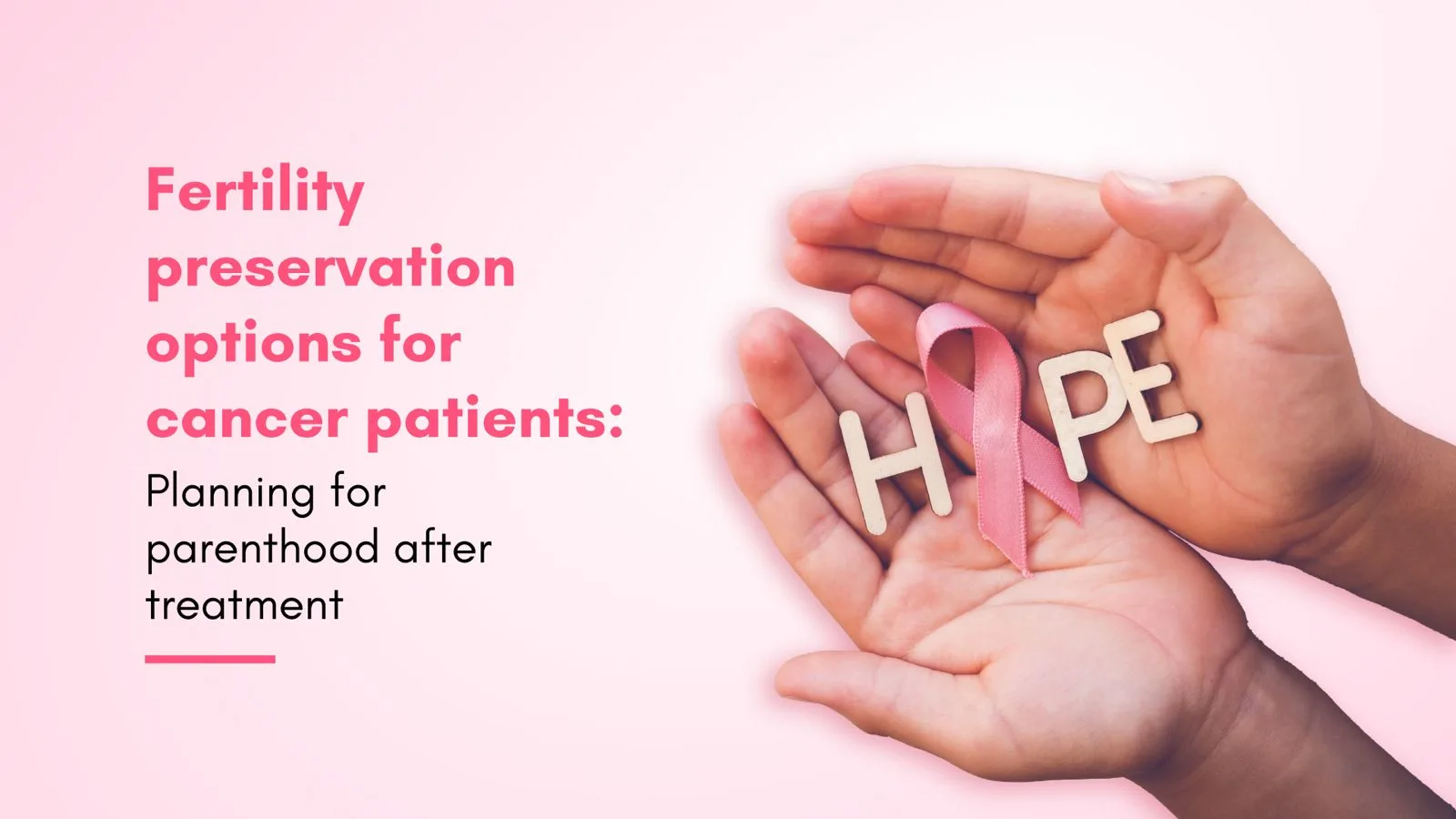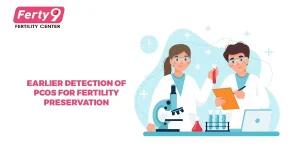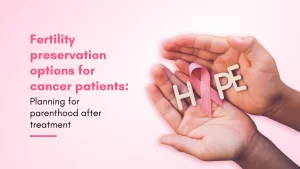Cancer has never been easier for anyone, and neither are its effects post-treatment. Patients can suffer from infertility and several other health issues after the chemotherapy. Whether a male or a female is affected by the terminal condition, fertility preservation can be the best choice for them to have children in the future. The good thing about fertility preservation in cancer patients is that as technology advances, the chances of pregnancy have also risen significantly.
Learn how cancer and fertility preservation treatment link together. Know why egg freezing, embryo cryopreservation, and embryo transfer are important to becoming a parent. Also, understand how fertility specialist clinics are helping thousands of couples to get pregnant.
The Effects Of Cancer Treatment On Fertility
Cancer is already harsh on the human body, and the radiation treatment weakens immunity and reduces the hormone production in your body, affecting your fertility. When you get cancer treatment, you might get growth hormone deficiency, hypothyroidism, or pubertal abnormalities. These health issues lead to damaging your nervous system or pelvic reproductive organs.
That’s why Fertility preservation in cancer patients ppt is becoming popular as technology advances and the success rate increases.
Importance Of Fertility Preservation For Cancer Patients
Fertility preservation in cancer patients is one of the most prominent ways for them to achieve parenthood after treatment. Mostly, this option is available for adults, but in some cases, children of both genders are also allowed to do so. Fertility preservation doesn’t usually need a partner or donor sperm and preserves a large pool of ovarian follicles in the female. It will enable them to have children in the future after their ovarian functions are resumed.
Fertility Preservation Options For Female Cancer Patients
Fertility preservation in female cancer patients is common, and it usually depends on their age, cancer type, treatment plans, and personal preferences. From IVF to PGT (Pre-implantation genetic testing), these options are quite popular among females seeking fertility treatment. Here are some of the options and how they are administered:
- Egg Freezing: This procedure involves extracting and freezing mature eggs for future use. Before treatment, you can get an egg freezing for cancer patients and use it after you are cured.
- Embryo Cryopreservation: In this treatment, eggs are retrieved from your ovaries, fertilized with your partner’s or donor’s sperm, and then frozen for future usage.
- Fertility-Sparing Surgery: In this case, your uterus and ovaries are retrieved and preserved. If you have early-stage gynecologic and endometrial cancer fertility preservation can help.
- Pre-Implantation Genetic Testing (PGT): This procedure involves screening the embryos created through IVF for genetic abnormalities before implantation. It helps women with breast cancer and fertility preservation helps in restoring their fertility after treatment.
Fertility Preservation Options For Men Cancer Patients
Millions of males suffer from erectile dysfunction and other reproductive issues due to cancer. In this case, fertility preservation in male cancer patients can give them a chance to have children in the future; they have a few options that can help. The following options aim to safeguard their fertility before they undergo cancer treatment:
- Sperm Banking: In this procedure, you can give your sperm to the clinic and get them frozen or preserved for future use as your cancer gets cured.
- Testicular Tissue Cryopreservation: In this method, your testicular tissues, which have sperm production cells, are retrieved and preserved for future use.
- Testicular Sperm Extraction (TESE) And Sperm Preservation: In this case, where you either have a low sperm count or have problems ejaculating, a Testicular Sperm Extraction (TESE) might be performed. Then, those extracted sperm are cryopreserved for future use.
Related Read: Fertility Preservation Options and Importance
Multidisciplinary Approach To Fertility Preservation
A multidisciplinary approach is a crucial part of fertility preservation cancer treatment, and it involves proper collaboration between healthcare professionals, nurses, oncologists, and urologists. The proper communication between these professionals can cater to your specific needs for cancer treatment and fertility.
An oncologist plays a central role in diagnosing cancer, preparing treatment plans, and collaborating with other specialists. This can help assess the potential impact of cancer treatment on your fertility and provide fertility preservation before cancer treatment.
Similarly, urologists, nurses, and other support staff also cooperate to address infertility issues in males. A urologist performs TESE (Testicular Sperm Extraction) to preserve your sperm for later usage.
Related Read: Importance of Fertility Preservation in Family Planning
Timing Of Fertility Preservation
The timing of fertility preservation is a crucial task that must be properly catered to. It usually depends on multiple factors, including the type of cancer, treatment plans, treatment urgency, and factors like age and fertility status. Some of the fertility preservation timings that are commonly considered for cancer fertility patients are as follows:
- Before cancer treatment.
- Urgent cancer treatment.
- Post-treatment fertility considerations.
When it comes to cancer patients, early discussion and collaboration between oncologists and other fertility specialists are crucial for optimizing both cancer and fertility outcomes.
Related Read: Tips and Support for Fertility Preservation Decisions
The Role Of Fertility Specialists
When nature throws a curveball toward your childbirth, a fertility doctor steps in for rescue. They are specialized in diagnosing and treating your infertility issues. A fertility specialist has expertise in managing complex reproductive issues, including terminal diseases like cancer.
A fertility doctor first conducts a thorough examination and diagnoses the cause of infertility. Then, they prescribe a personalized treatment plan to address your issues. Following that, they perform advanced fertility procedures like IVF, IUI, and ICSI (Intracytoplasmic Sperm injections). Not only that, but they also provide emotional and psychological support throughout your fertility treatment.
Addressing Emotional And Psychological Aspects
As you go through your fertility treatment, there is a crucial need for emotional and psychological support. Individuals and couples can go through the treatment more effectively with emotional support.
When healthcare professionals provide psychological support to a cancer patient, it also increases the chances of a successful recovery and pregnancy in the future. Healthcare professionals can address the following aspects:
- Psychological Counseling
- Mental Stress & Anxiety
- Support Groups
- Mindfulness And Relaxation
- Involvement Of Family Members And Partners
- Pregnancy Celebration
Addressing these aspects of fertility preservation in cancer patients, healthcare professionals can help alleviate their distress, improve their coping skills, and enhance their overall quality of life.
Related Read: What to Expect in an Infertility Counselling Session
Post-Cancer Parenthood Planning
When you are diagnosed with cancer, there are a lot of uncertainties in your life. And, if you are planning to have children in that state, it usually depends on how much risk you are willing to take. In this case, you can talk to your healthcare provider and get in contact with your fertility doctor, as there is a chance that your cancer can return even after the treatment.
You can always go for a fertility consultation with your fertility specialist to get a diagnosis result of your condition. These planning tips can help you a lot in post-cancer parenthood:
- Get A Consultation With Your Fertility Specialist
- Get Your Cancer Treatment Effects Reviewed
- Explore Fertility Treatment Options
- Address Your Emotional And Psychological Needs
- Plan Out Your Finances.
Fertility Options For Different Cancer Scenarios
Fertility options are variable when it comes to different cancer scenarios. With every cancer type, your fertility treatment plan also changes. These plans usually depend on your cancer type and your fertility status. Here are some cancer types where you might need to get a different type of fertility preservation treatment:
- Breast Cancer: For fertility preservation in breast cancer patients, women might need egg freezing along with ovarian suppression to preserve their fertility.
- Testicular Cancer: Men with this cancer might need to turn to sperm banking and later Orchiectomy (surgical removal of testicles). The preserved sperm can later be used to conceive a child.
- Cervical Cancer: In this case, women also need to get an egg or embryo preservation along with fertility-sparing surgery. Fertility preservation before chemotherapy and radiation therapy for cervical cancer work best in most cases.
One of the most common cancer types is breast cancer in women, and it affects their fertility indefinitely. Getting fertility preservation during breast cancer might be the best option for you if you are planning for pregnancy after treatment ends. The same goes for fertility preservation in endometrial cancer for women suffering from it.
Conclusion
In the end, cancer patients are already devasted as they get diagnosed with it. It threatens their life and puts a risk to your future generation. In this scenario, getting your fertility preserved is the best gift you can give to yourself.
Make sure you are trusting an expert and experienced fertility doctor for your assessment and treatment to increase your chances of parenthood. With newer and advanced technology, women can now get Breast cancer fertility preservation and regain their chance of becoming parents.





























